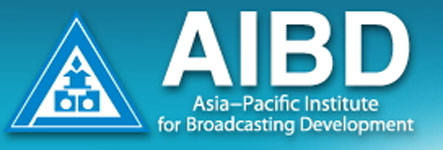Ministers in Asia-Pacific in-charge of broadcasting, communication and Infromation are expected to gather during the Asia Media Summit 2015 in Kuala Lumpur, Malaysia for roundtable talks dealing with social media.
It’s a new feature in this global conference set for May 2015 that will afford top-ranking government officials in the region the opportunity to examine developments in social media and share insights on the its impact on broadcasting and many facets of the region’s political, economic and social life. This roundtable will complement discussions among local and foreign broadcasters on the conference theme “Transforming Broadcasting in the Social Media Era.”
The Broadcaster talked to three participants to the 13th Asia Pacific Institute for Broadcasting Development (AIBD) General
Ministers in Asia-Pacific in-charge of broadcasting and communication are expected to gather during the Asia Media Summit 2015 in Kuala Lumpur, Malaysia for roundtable talks dealing with social media.
It’s a new feature in this global conference set for May 2015 that will afford top-ranking government officials in the region the opportunity to examine developments in social media and share insights on the its impact on broadcasting and many facets of the region’s political, economic and social life.
This roundtable will complement discussions among local and foreign broadcasters on the conference theme “Transforming Broadcasting in the Social Media Era.” The Broadcaster talked to three participants to the 13th AIBD General Ministry of Science, ICT and Future Planning, Republic of Korea, spoke of the need to discuss media convergence and developments in broadcasting such as the introduction of UHDTV, which Korea will launch extensively by 2018. “Policies and regulations dealing with media convergence should also be on top of the agenda in this roundtable,” he said. For his part, Mr. Tito Cruz, Director of Bureau of Broadcast Services, Philippine Broadcasting Service, wants Ministers to look into the readiness of countries in Asia Pacific to fully exploit the benefits of social media. “We need to introduce programmes to ensure our citizens have better access to technology and information,” he said.

By bnnrc
AHM Bazlur Rahman-S21BR is Chief Executive Officer and founder Secretary of Bangladesh NGOs Network for Radio and Communication (BNNRC). He has more than 20 years experience in leveraging community media and right to communication to create successful policy advocacy in Bangladesh in line with community media development. His areas of expertise straddle community media policy advocacy, training, project management especially in the area of community media.
He founded Bangladesh NGOs Network for Radio and Communication (BNNRC). BNNRC Devoted Entirely to Promote Community Media for Development (CM4D). BNNRC Leads Supports and Advocates for the Initiators to actively provide independent community broadcasting in Bangladesh since 2000. BNNRC represent the community electronic media sector to Government, Industry, Regulatory Bodies, Media, Academia and Development Partners from 2000. The BNNRC provides leadership and support for rural initiators to facilitate independent electronic community broadcasting services and to build and strengthen rural communities.
He actively works to improve recognition of the community electronic media sector [Community Radio | Community TV | Community Film] & its work in and involvement with the communities it seeks to serve. BNNRC's outreach extends to local, national and international forums for communicating Knowledge for Development (KM4D). In this backdrop, communication is recognized as an essential human need and, therefore, as a basic human right. Our working strategies are:
1. Communicating on the Public Sphere: The role of communication and media in exercising democratic political participation in society
2. Communicating Knowledge: The terms and means by which knowledge generated by society is communicated, or blocked, for use by different groups.
3. Civil Rights in Communication: The exercise of civil rights relating to the processes of communication in society &
4. Cultural Rights in Communication: The communication of diverse cultures, cultural forms and identities at the individual and social levels.
BNNRC now strives for the following core interventions to contribute in achieving 6th five Years Plan, UN World Summit on the Information Society (UN WSIS) Action Plan and Millennium Development Goals (MDGs) through:
Right to Information- RTI for ensuring improved livelihood of the marginalized
ICT for Development- ICT4D for Bridging the Digital Divide in rural areas &
Community Radio/Community TV/ Community Film for amplifying voices for the voiceless and Amateur Radio for Disaster Risk Reduction
He graduated from University of Dhaka and Post graduated from Asian University of Bangladesh in the field of Social Science (MSS) in Government & Politics and Participated in certificate course on Development Management by Participatory Research in Asia (PRIA) New Delhi, India
He currently founder member of Bangladesh Working Group on UN World Summit on the Information Society (UN WSIS) headed by Bangladesh Government, Community Radio Monitoring Committee of Ministry of Information, People’s Republic of Bangladesh, founder member of Bangladesh UN Internet Governance Forum( UN IGF) Headed by Minister, Ministry of Information, Multi-stakeholder Steering Group Members of Asia Pacific Regional Internet Governance Forum (AP-RIGF) & Distinguish Fellow, Center for e-Parliament Research. Contact: ceo@bnnrc.net www.bnnrc.net
View all of bnnrc's posts.
